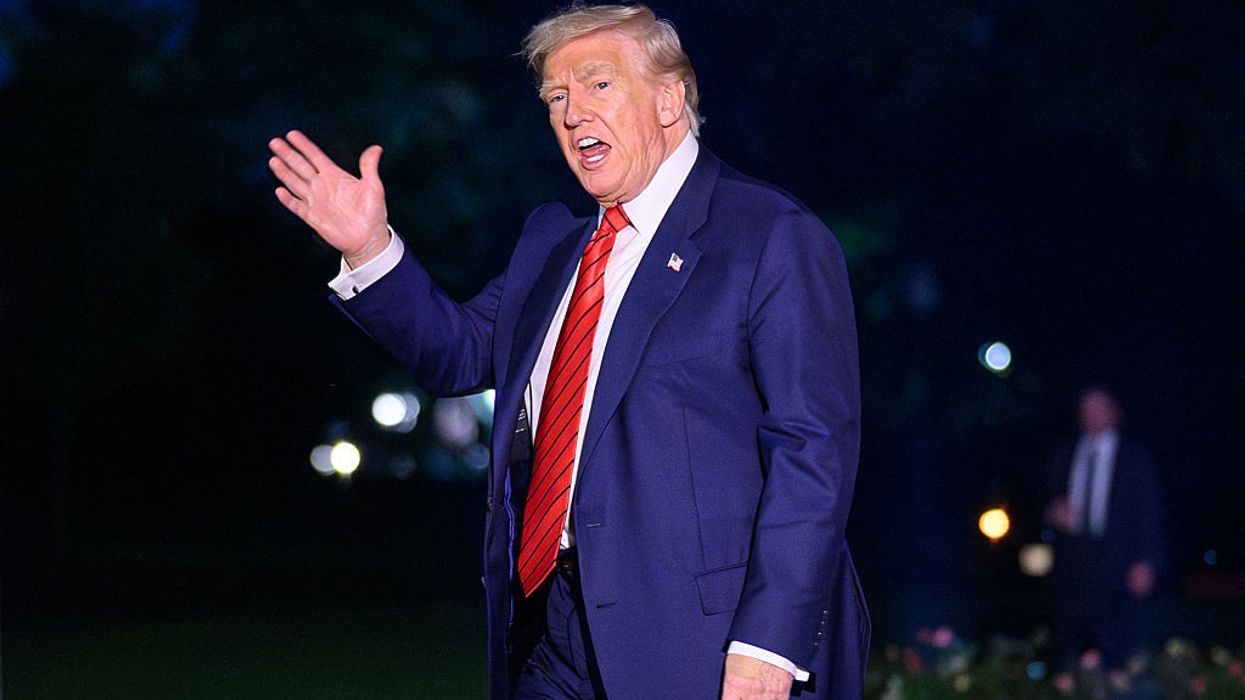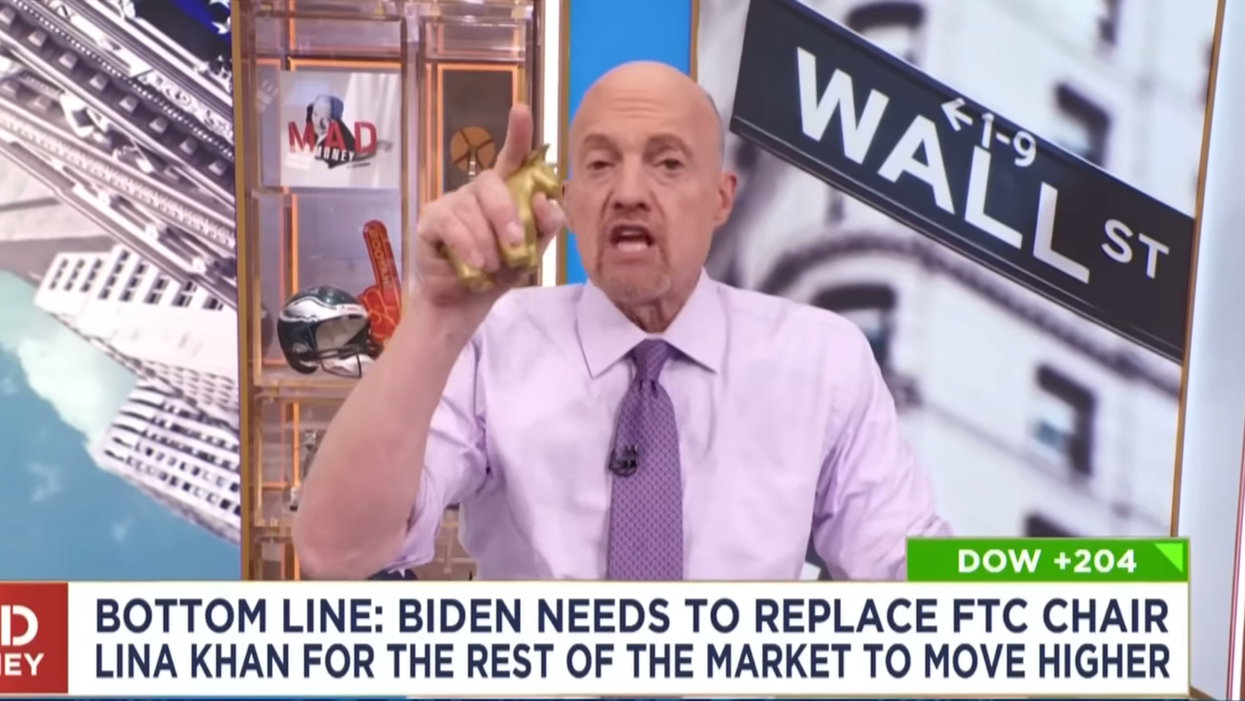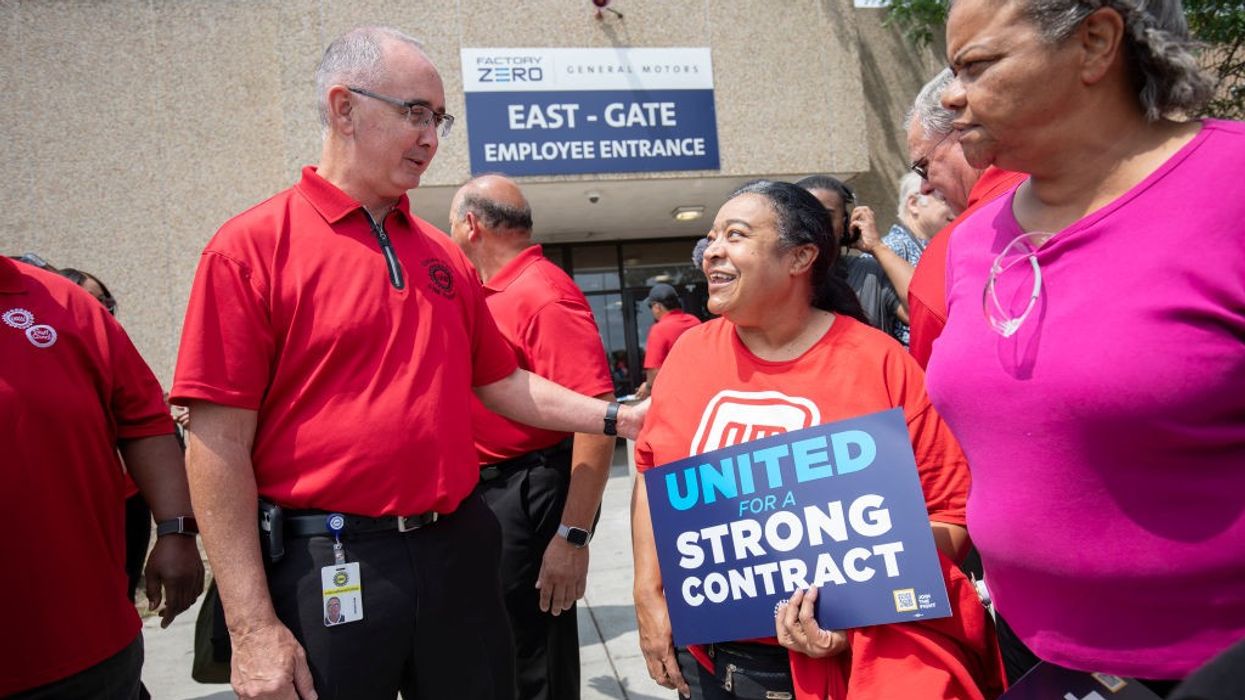Trump, however, insisted that his statements about hiding downward revisions until after the election were correct even though the biggest downward revisions actually occurred in August 2024, well before the election took place.
Commenting on Trump's assertion, Media Matters for America senior fellow Matt Gertz described it as "completely backwards."
"The BLS announcement on November 1 [2024] showed weak growth of 12,000 jobs in October and downward revisions to August/September of 112,000," Gertz explained on X. "Then after the election, the October figure was revised upward. Impossible to tell if Trump is lying, dumb, or sundowning."
Nick Tiriamos, the chief economics correspondent for The Wall Street Journal, similarly said that Trump was "getting his dates wrong" when he asserted a cover-up of negative jobs numbers given that "the big downward revision" was reported before the election took place.
Trump also made also false claims about the price of gas in the United States falling to just $2.20 per gallon, which prompted Kernen to note that the lowest prices he's seen for gas in the U.S. were $2.80 per gallon.
National security attorney Bradley Moss slammed Trump for his claim about gas prices and added that the latest data show that inflation has been accelerating in recent months as the president's tariffs begin to force companies to raise prices.
"The rest of the country is suffering from higher prices on everything, and this senile old man is living in a fantasy world in which it's simply not happening," he wrote on Bluesky.
Trump proceeded to make false claims about the trade deal he had recently struck with the European Union when he said that the agreement gave him "$600 billion to invest in anything I want." This drew the ire of Steve Peers, a professor of E.U. and human rights law at Royal Holloway University of London.
"Well no, it's a vague, nonbinding, unwritten nonstatement about companies' future investment plans, not cash for him to personally control," Peers commented on Bluesky. "But enjoy your weird demented fantasy, I guess."
Another eye-popping Trump statement came when he tried to defend the use of immigrant labor in the American agricultural industry by claiming that the immigrants had unique physical attributes that were absent from American workers.
"People that live in the inner city are not doing that work," Trump said of the prospects of American citizens picking crops. "They've tried, we've tried, everybody tried. They don't do it. These people [immigrants] do it naturally. Naturally... they don't get a bad back, because if they get a bad back, they die."
This statement drew the attention of Branden McEuen, a historian at Wayne State University who specializes in teaching about the history of the eugenics movement. Specifically, McEuen linked Trump's statement to past racist beliefs about people of color being genetically predisposed to engage in manual labor.
"Trump saying people of color are naturally suited to farm labor sure sounds a lot like the slaveholders that said slaves were naturally inclined to servitude," he remarked.
SiriusXM radio host Michelangelo Signorile picked up a similar vibe from Trump's statement about farmworkers.
"The racism here is on steroids, as Trump tried to make [the] case to MAGA that farmers need exemptions," he wrote. "[Trump] says brown people do hard labor 'naturally' and don't get [a] bad back, while also saying they've tried to replace them with people 'in the inner city' but they can't get them to do the work."




